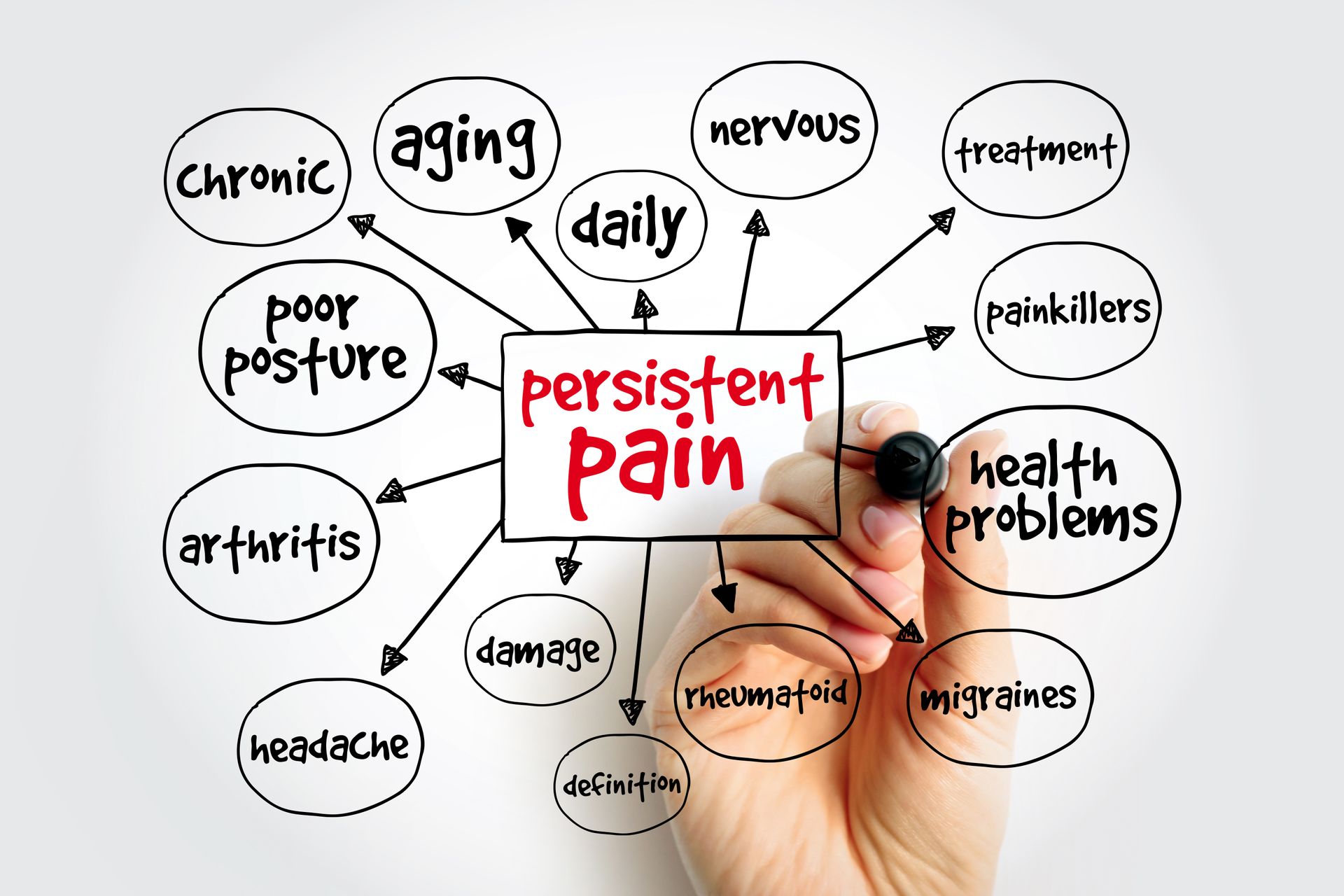Managing Chronic Pain with Medications
Living with chronic pain is challenging, to say the least, which is why medications are a vital component of many pain management strategies. While non-drug strategies like physical therapy, exercise, meditation and acupuncture can provide complementary relief, they ultimately can’t replace the efficacy of pain management medication. However, these medications are more complex than other prescriptions and require careful adherence to your healthcare provider's recommendations to avoid possible complications. birth defects
Types of Chronic Pain Medications
- Non-Steroidal Anti-Inflammatory Drugs (NSAIDs): NSAIDs, including Ibuprofen, Naproxen and Aspirin, are formulated to reduce inflammation, one of the main aggravators of chronic pain, but can sometimes cause stomach irritation, ulcers and kidney problems with long-term use. Women in later stages of pregnancy also shouldn’t use them, as they can increase your baby’s risk of developing birth defects.
- Muscle Relaxants: Muscle relaxants like Cyclobenzaprine, Baclofen, Metaxalone, Tizanidine and Diazepam can alleviate spasms, strains, tension and other muscle-related chronic pain. Patients on muscle relaxants can experience excess drowsiness and dependency, so it’s important to exercise caution when taking them.
- Narcotic Pain Relievers (Opioids): Opiate-based narcotic pain killers, including Hydrocodone, Propoxyphene and Oxycodone, weaken your perception of pain to make living with it easier, but it’s only prescribed in severe chronic pain cases. Opioids are highly addictive and can result in a life-threatening overdose without careful monitoring. They can also sometimes cause constipation, drowsiness and nausea.
- Antidepressants and Anticonvulsants: Certain antidepressants, like tricyclic antidepressants and selective serotonin and norepinephrine reuptake inhibitors (SSNRIs), can help manage neuropathic chronic pain by altering the brain’s perception of pain, in a manner similar to opioids. These medications may sometimes cause dizziness, drowsiness, weight changes and sexual dysfunction.
- Nerve Blocks: Lidocaine and Bupivacaine are injectable anesthetic and anti-inflammatory medications that are administered to specific nerves or nerve clusters to block pain signals for patients with nerve-related chronic pain. Side effects can include elevated blood sugar, rash, weight gain and bleeding.
- Topical Analgesics: Creams, patches or gels with analgesic agents like lidocaine or capsaicin can provide localized pain relief for conditions like arthritis or localized muscle pain. However, they may cause skin irritation or allergic reactions at the application site.
Tips for Managing Chronic Pain with Medications
Your healthcare provider can adjust your treatment plan to provide maximum relief for your chronic pain. Keeping track of your pain levels can help them alter your medications as needed. You should also communicate your pain management goals with your provider. Whether it's pain reduction, improved function or minimizing side effects, being clear about your objectives will guide treatment decisions as they craft a pain management strategy specific to your situation.
It’s essential that you follow the medication schedule they provide religiously. Missing doses or taking more than prescribed can weaken your regimen’s effectiveness and could result in adverse side effects. You should be especially cautious with opioids, as taking too much can sometimes prove fatal.
Your healthcare provider will conduct a comprehensive evaluation, including a physical examination, medical history review and possibly diagnostic tests to identify the source and nature of your pain.
Although chronic pain management is a valuable tool that allows many people to cope with chronic pain and live normally, it’s ideal to find a long-term treatment solution to the root cause of pain. For many patients, the goal should be healing to the point where chronic pain management is no longer needed.
Can I Stop Taking Chronic Pain Medications Once My Pain Improves?
You shouldn’t stop medications abruptly without consulting your healthcare provider. They will guide you as you taper off or will change your treatment plan if necessary.
We’ll Help You Manage Your Chronic Pain
At St. Hope Pharmacy, we’ll fulfill your chronic pain prescription promptly and help explain your medication regime in depth, such as whether you can take them with food or on an empty stomach and if certain medications need to be taken at a certain time in the day. As a full-service pharmacy, we serve St. Hope patients and non-patients alike. You can trust our pharmacists to keep you informed so you never feel confused about what you’re taking.
We have six pharmacies located in Bellaire, Conroe, Houston, Sugar Land and Dickinson. Contact your closest location if you would like to transfer your chronic pain prescription to one of our pharmacies.



